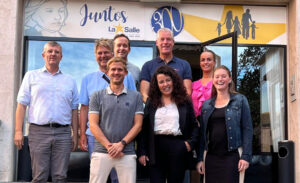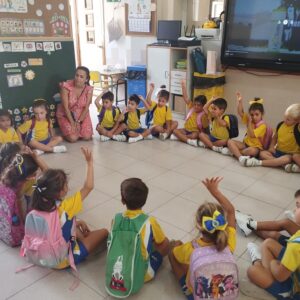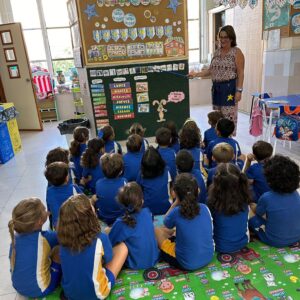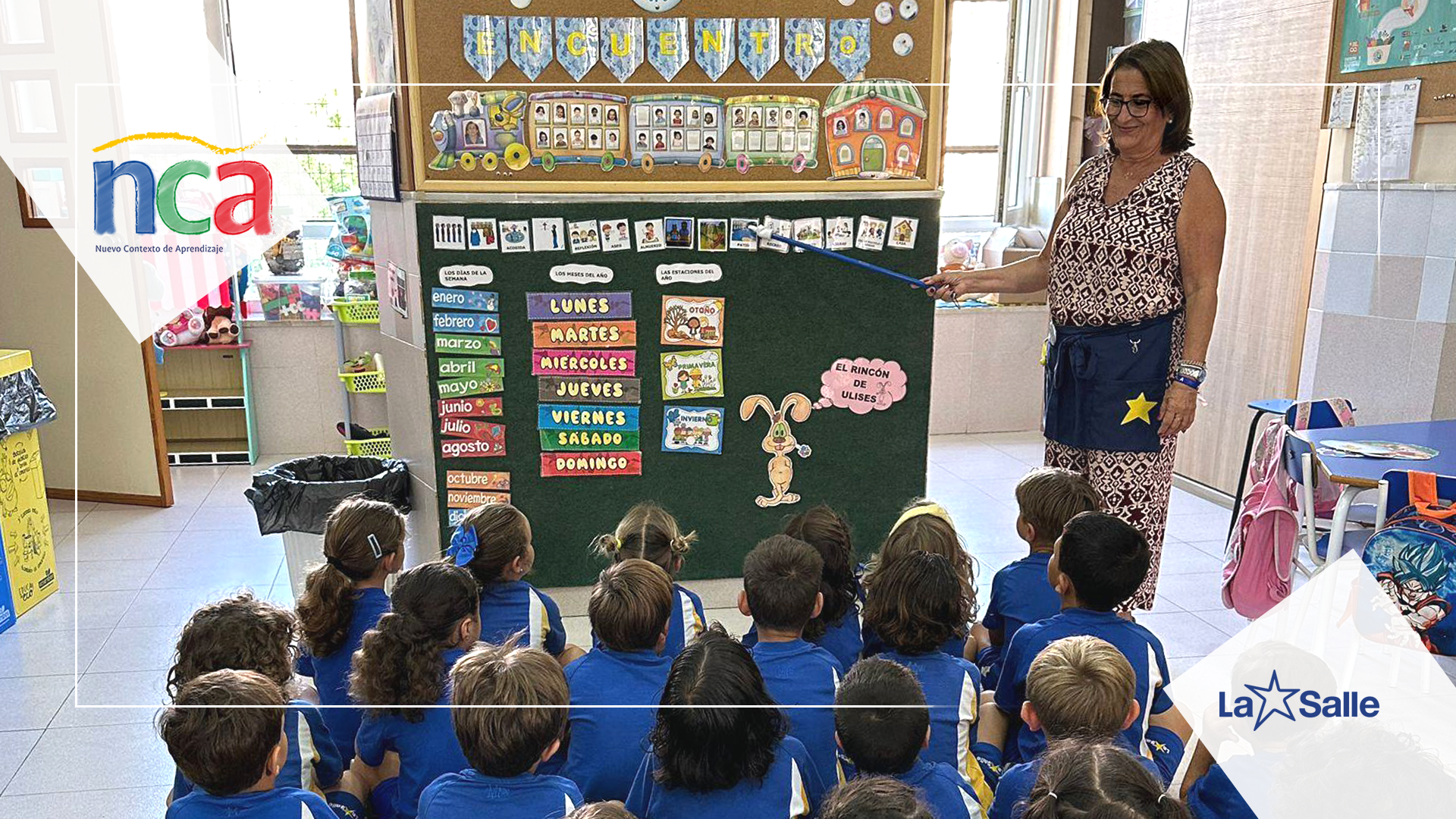 “La Salle contains contains the gene of innovation in its DNA, and its mission is to provide a response to the needs that the reality of life at any given moment demands”, this way Brother Julio González Fernández, Auxiliary Visitor of the Arlep District (Spain and Portugal), explains the origins of the pedagogical model New Context for Learning (NCA – “Nuevo Contexto de Aprendizaje” in Spanish).
“La Salle contains contains the gene of innovation in its DNA, and its mission is to provide a response to the needs that the reality of life at any given moment demands”, this way Brother Julio González Fernández, Auxiliary Visitor of the Arlep District (Spain and Portugal), explains the origins of the pedagogical model New Context for Learning (NCA – “Nuevo Contexto de Aprendizaje” in Spanish).
Creative fidelity
As an expression of “creative fidelity”, Brother Julio highlights the importance of “remaining faithful to our identity, our values, our essence, being creative in adapting ourselves to the time and place in which it falls to us to bear witness to the legacy of our founder, St John Baptist de La Salle”.
Therefore, for Brother Julio, who is also the Director of the Arlep District Network of Educational Works, “the NCA is the response to the here and now of education and is the fruit of what has been learned over the years in the classrooms and the observation of the concerns of both students and educators, who place themselves in a changing society that demands a global transformation which, we understand, we can address through the education of the protagonists of the future“.
Integral Development and Pedagogy

“The person as the protagonist of the process”, is the key to understanding the essence of the pedagogical model, as Brother Julio explains: “it is an educational offer that seeks the integral development of the person: being, knowing, knowing how to do, and which has as its ultimate objective the construction of people capable of transforming the world”. In view of this, “the NCA is born of joint reflection as an institution and of in-depth research and involves a long-term change in the culture of education, which implies transforming how we teach in order to transform how we learn, together with the transformation of how we evaluate the acquisition of what we have learnt”.
Specifically, there are five pedagogical principles on which the model is based and which operate as transversal axes of the educational process: interiority; construction of thought; self-regulated behaviour and activity; mind, body, movement; and the social dimension of learning.
“From here, different learning contexts are offered which have been called pedagogical environments, which have been adapted to the different educational stages and which seek to be the moments that make possible the development of the dimensions of the person,” says Brother Julio, insisting that the NCA “allows the discovery of other potentialities of the students, being an experience that is based on the participation of children and young people in their own learning, focusing on progressing as a person and doing so, moreover, in a personalised way”. Indeed, one of its most visible results is that students “feel part of their personal growth and aware of their achievements in order to share them”.
Technology with Judgement
On the other hand, recognising that technology “is part of our daily life”, as well as its impact on the new generations who “have already been born in a digital society and are natives of a language and a technological culture”, Brother Julio explains that “from the point of view of responsibility, and aware of the need to educate in the good use of technology, technology is a tool present in the NCA model and integrated into it as something else that helps in learning“, but without absolutizing it as a protagonist or the only one.
“Within the different activities proposed in the diverse areas, and taking into account the age of the protagonists, tools, devices and applications are incorporated which contribute to the improvement of different skills or help in the learning process”, continues the Lasallian religious.
However, it is also clear that “in today’s world, technology challenges us”, and this also means “opening ourselves to the possibilities it offers us and allowing ourselves to be immersed in all the good things it has to offer“.
A shared Model

“The model, which began years ago with pilot experiences in some of the educational works of the Arlep District, has been progressively implemented in all the educational works of La Salle in Spain, covering all educational stages, from the first cycle of early education to university, also contemplating socio-educational works”.
Even beyond the Lasallian geography, Brother Julio says that “whenever we have the opportunity to make our pedagogical offer known, both within our Lasallian Family and in other educational domains, as in the case of the Lucas Onderwijs Foundation, for us it is a source of pride and a responsibility, because we want to help others in their process of reflection on how to provide the best response to our children and young people based on the values and identity, the moment and the reality of each of the institutions that approach us is experiencing”.
This year the Lucas Onderwijs Foundation, one of the main institutions in the educational organisation of the Netherlands, showed interest in learning about the NCA pedagogical model of La Salle. At the end of September a presential meeting was arranged in Madrid (Spain) to make the model known and to see how it works in practice.
“The NCA is the Lasallian response, based on our tradition, our identity, our values, and what we can offer; more than a model, it is an open door to that reflective process which is incumbent on all of us as those responsible for guiding in their growth as persons those who will have to face the future and work for a better society for all”, concludes Brother Julio.



